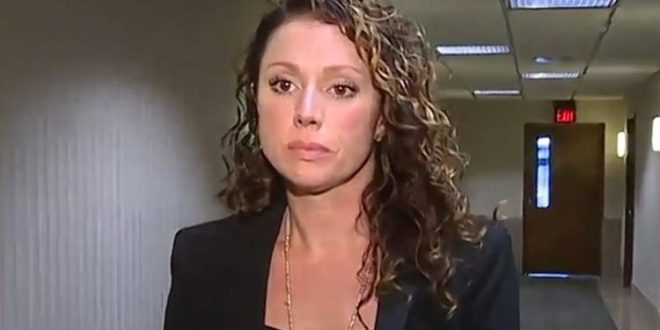A Michigan mother’s anti-vaccination stance put her behind bars on Wednesday.
Rebecca Bredow was sentenced to seven days in jail after she refused to vaccinate her 9-year-old son.
An Oakland County judge ordered Bredow to jail because she violated an agreement with her ex-husband to vaccinate their son.
Bredow said she opted for waivers available under Michigan state law, which allows for vaccine exemption based on religious, personal or medical beliefs.
Although Bredow is the primary caregiver, Judge Karen McDonald said the boy has two parents and “Dad gets a say.”
The mother of two and her ex-husband agreed at the time of their child’s birth that they would space out and delay vaccines for their son. The couple separated in 2008, and the father decided he wanted his son vaccinated as the child got older.
Bredow said vaccinations go against her beliefs and she should have raised her objections sooner. She told the judge that she takes “full responsibility” for her actions.
When parents choose not to vaccinate: Risks and responsibilities
Parents are responsible for their child’s health and well-being, including protecting them from vaccine-preventable diseases. The Canadian Paediatric Society urges all children to receive routine vaccinations and an annual influenza (flu) vaccine, unless there is a medical reason not to.
If you choose not to vaccinate your child you should understand the risks. You need to know how to make it less likely that your child gets an infection or spreads disease to others.
Protecting your child
Infant and childhood vaccines prevent diseases that can be serious and even deadly. Some examples:
- Measles can cause brain swelling, which can lead to brain damage or death.
- Mumps can cause permanent deafness.
- Meningitis can also lead to permanent deafness or brain damage.
- Polio can cause permanent paralysis.
Any child can be exposed to these infections. While avoiding contact with sick people is useful, infections like measles can also spread through the air. Your child may come in contact with people are carrying germs, even if they don’t seem sick.
There are no treatments or cures for diseases like measles, mumps and polio. The only proven way to protect your child is with vaccines.
Protecting others
Delaying or refusing some or all vaccines for your child puts his health and life at risk. It also risks the health of other people. Those most at risk include:
- People with weakened immune systems due to other diseases or medications they are taking.
- People with chronic medical conditions like lung, heart, liver, kidney disease or diabetes.
- Newborn babies, who are too young to be vaccinated against most diseases.
- The elderly, who may be at higher risk of complications from diseases.
Communities depend on high immunization rates to keep vaccine-preventable diseases from spreading. When more people are immunized, there is less risk for everyone. The more parents that choose to not vaccinate their children, the greater the risk that infection will spread in the community.
If you choose not to fully vaccinate your child, follow these steps:
- If your child is sick and you call or visit a health care provider, immediately tell office staff and the doctor that your child is not vaccinated (whether for some or all vaccines). They will consider the possibility that your child has a vaccine-preventable disease, which may affect what tests they do. If your child has a vaccine-preventable disease, precautions can be taken so that the disease does not spread to others.
- Always keep vaccine records accessible so that you can report which vaccines your child has received, if any.
Agencies/Canadajournal
 Canada Journal – News of the World Articles and videos to bring you the biggest Canadian news stories from across the country every day
Canada Journal – News of the World Articles and videos to bring you the biggest Canadian news stories from across the country every day



